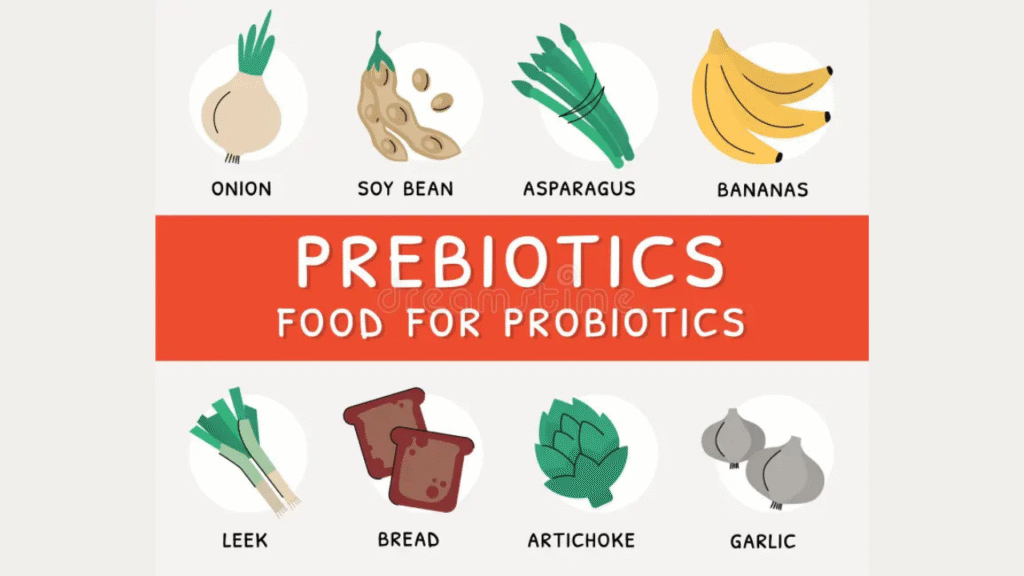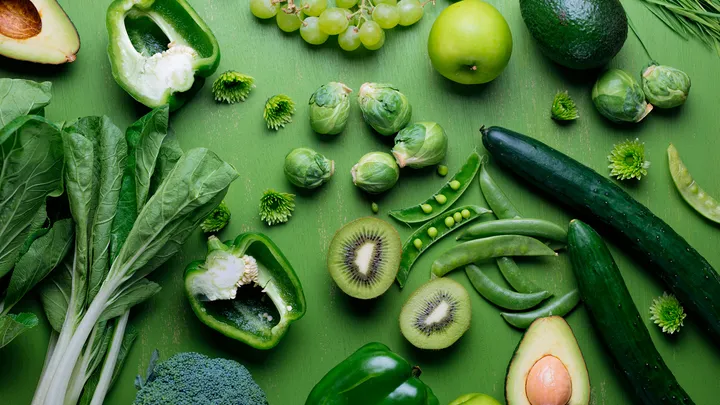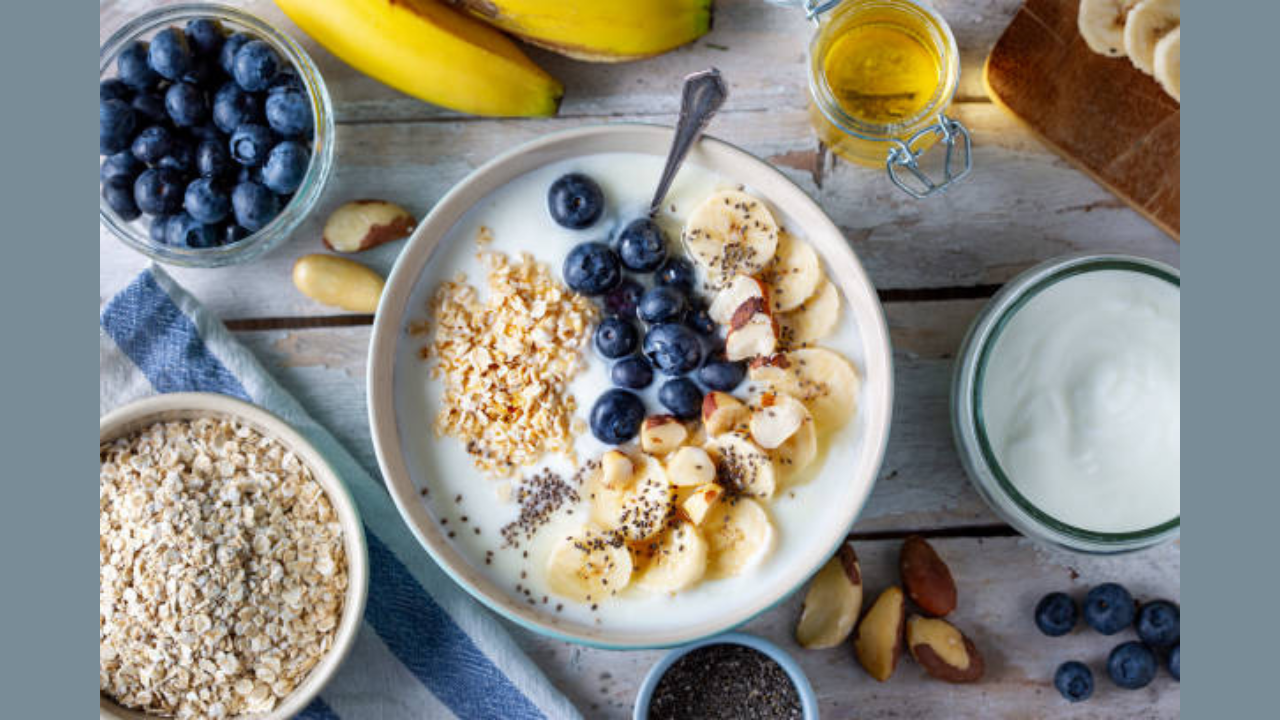Foods That Improve Gut Health Naturally & Boost Digestion
Discover the best foods that improve gut health naturally. Learn how probiotic and prebiotic foods like yogurt, kefir, and bananas boost digestion, strengthen immunity, and support long-term wellness.
Introduction
Your gut is often called your body’s “second brain” — and for good reason. It influences not only digestion but also your energy levels, mood, and immune system. When your gut microbiome (the mix of good and bad bacteria) is balanced, your body functions more efficiently.
If you struggle with bloating, indigestion, or low energy, improving your gut health may be the solution. In this post, we’ll explore foods that improve gut health naturally — including probiotics, prebiotics, and fiber-rich foods — so you can achieve better digestion and long-term wellness.
1. Probiotic-Rich Foods: The Good Bacteria Your Gut Needs
Probiotics are living microorganisms that provide numerous health benefits when consumed in the right amounts. They help balance the bacteria in your gut, improving digestion and nutrient absorption.
Best Probiotic Foods Include:
-
Yogurt: Choose unsweetened, live-culture yogurt rich in Lactobacillus and Bifidobacterium.
-
Kefir: A fermented milk drink that contains up to 30 strains of beneficial bacteria.
-
Kimchi & Sauerkraut: Fermented vegetables that enhance microbiome diversity.
-
Miso & Tempeh: Plant-based probiotic sources made from fermented soybeans.
Authority Reference:
Harvard Health – The Benefits of Probiotics
Pro Tip: Include at least one probiotic food daily to maintain a balanced gut flora. Add kefir to your breakfast smoothie or pair sauerkraut with grilled veggies.

2. Prebiotic Foods: Feeding Your Good Bacteria
Prebiotics are a special type of non-digestible fiber that acts as food for probiotics. They help good bacteria thrive and multiply, creating a healthier gut environment.
Top Prebiotic Foods:
-
Bananas (especially slightly green)
-
Garlic and Onions
-
Oats
-
Asparagus and Leeks
-
Chicory Root and Jerusalem Artichokes
These foods improve digestion, reduce bloating, and strengthen your immune system.
Authority Reference:
Cleveland Clinic – Prebiotics and Probiotics for Gut Health
Pro Tip: Combine prebiotic and probiotic foods in your meals — for example, yogurt with bananas or kimchi with brown rice — to create a synbiotic effect that maximizes benefits.

3. High-Fiber Whole Foods for Smooth Digestion
-
Fiber acts as the “clean-up crew” for your digestive system. It keeps things moving, removes waste, and feeds your gut bacteria.
Best Fiber-Rich Foods Include:
-
Leafy greens: Spinach, kale, and Swiss chard
-
Whole grains: Oats, brown rice, and quinoa
-
Seeds: Flaxseeds, chia seeds, and pumpkin seeds
-
Legumes: Lentils, chickpeas, and beans
These foods not only promote healthy digestion but also help control blood sugar levels and support weight management.
Authority Reference:
Medical News Today – Fiber and Gut Health -
For more nutrition tips, read Vitamins That Support Fat Burning and Metabolism
4. Hydration & Fermented Beverages
Staying hydrated helps the digestive system function smoothly. Water breaks down food, absorbs nutrients, and prevents constipation.
Adding fermented drinks like kombucha, coconut water, or herbal teas provides additional probiotic and detox benefits.
Pro Tip: Start your morning with warm water and lemon — it helps stimulate digestion and wake up your gut naturally.
You may also like our guide on Best Natural Detox Drinks for Weight Loss & Energy.

5. Limit Processed Foods, Alcohol & Sugary Snacks
Processed foods and excess sugar feed harmful bacteria in your gut, leading to imbalance and inflammation. Artificial sweeteners can also disrupt your microbiome.
To maintain a healthy gut, limit:
-
Sugary desserts
-
Fried or processed snacks
-
Alcohol and soda
-
High-fat fast food
Replace them with whole, nutrient-rich meals that are easier for your gut to digest and absorb.
6. Herbs & Spices that Support Gut Health
Natural herbs and spices not only add flavor but also support healthy digestion.
Top choices include:
-
Ginger: Reduces nausea and promotes gut motility.
-
Turmeric: Helps reduce gut inflammation and supports liver function.
-
Peppermint: Relaxes intestinal muscles and eases bloating.
-
Fennel Seeds: Known for soothing stomach discomfort.
You can add these to teas, soups, or daily meals for natural gut balance.

❓ FAQ of foods that improve gut health naturally
1. What are the best probiotic foods for gut health?
Yogurt, kefir, kimchi, and sauerkraut are some of the best probiotic foods that improve gut health naturally.
2. How do prebiotics help with digestion?
Prebiotics feed the good bacteria in your gut, improving digestion and reducing inflammation.
3. Can improving gut health help with weight loss?
Yes, a healthy gut supports better metabolism and nutrient absorption, which can indirectly help with weight management.
4. How long does it take to see results from probiotic foods?
Most people notice improved digestion and energy within 2–4 weeks of consistent probiotic intake.
5. Are fermented drinks like kombucha safe?
Yes, kombucha and similar beverages are safe when consumed in moderation and can enhance gut flora naturally.
Conclusion of probiotic and prebiotic foods
Improving your gut health doesn’t require drastic changes — just smart food choices.
By including foods that improve gut health naturally, such as yogurt, bananas, oats, and leafy greens, you can enhance digestion, boost immunity, and even uplift your mood.
Start small, stay consistent, and your body will thank you with improved energy, metabolism, and overall well-being.
